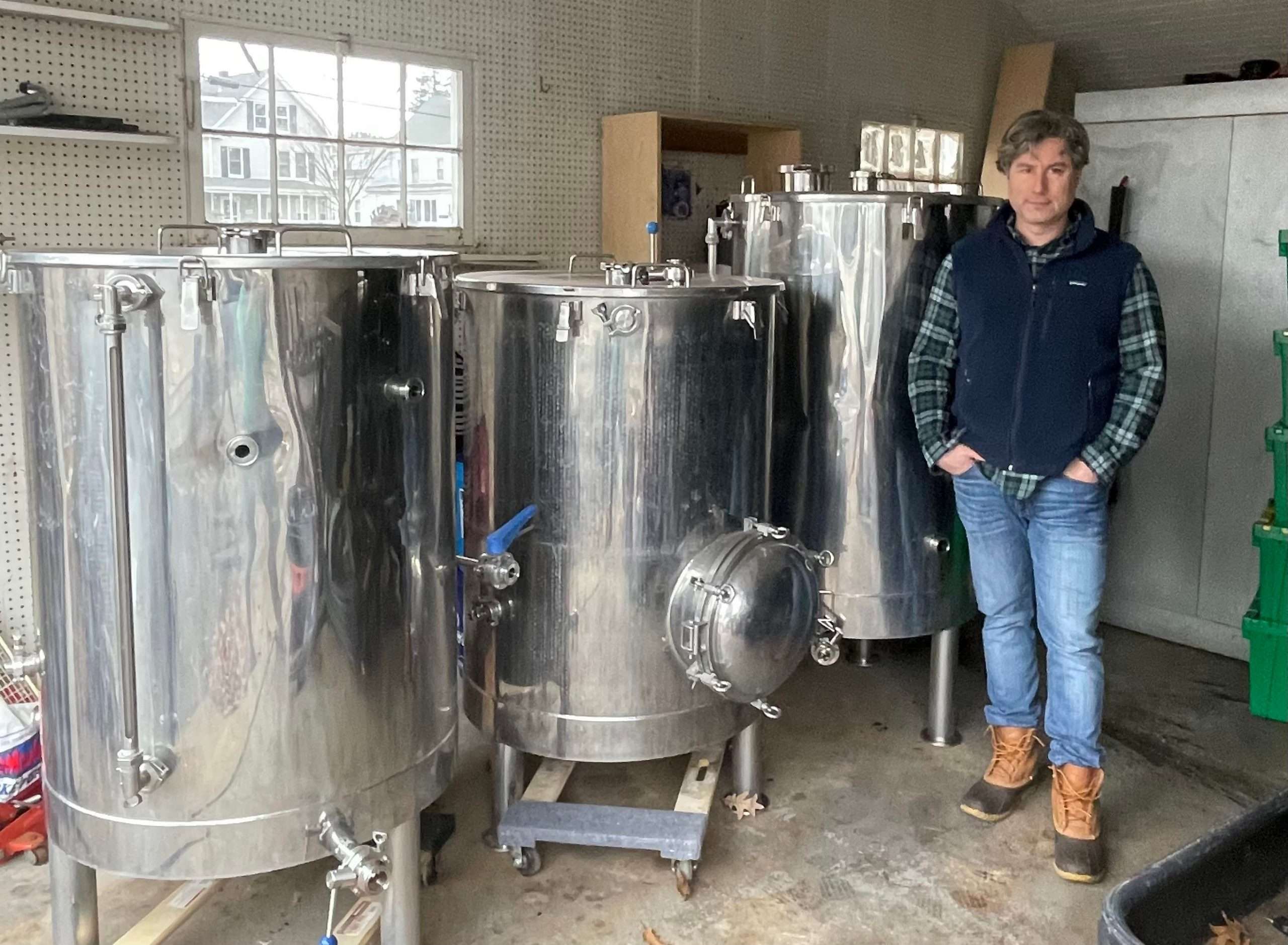Riverstone Brewing Co. – Sanford’s First Microbrewery

Sanford is on the move these days – with the biggest airport solar project in the state, the newest performing arts center, and our great new high school and technical center. And now you can add to that list Maine’s newest microbrewery – Riverstone Brewing Company, which is also Sanford’s first.
Riverstone is owned and operated by Michael Gill, a Dixfield native who has lived in the area for many years while working as a designer for Rubb Building Systems here in Sanford. He is now producing lager and ale full time from his garage while he looks for a commercial location.
Michael told us he began brewing as a hobby in 1994, but got really serious about the craft around 2008 when he first tasted New England IPA (India Pale Ale). This style of beer is very different from other brews, with a less bitter, more fruity flavor, and is more reliant on the chemistry of both the water and the hops than traditional beers, making it an interesting challenge for the brewer.
Michael got his occupancy permit from the City last summer, which was the first step in the licensing process. A few months ago he received his final license from the state to start manufacturing, and Riverstone brews hit the market last month. Because the permit from the City doesn’t allow for public access, Michael is focusing on wholesale distribution at this time. Our local bars and restaurants are quickly discovering Riverstone products – you can find them at Pilot’s Cove Café, Smitty’s and the Springvale Publick House.
Meanwhile, he is scouting locations for his own brew pub. He’s looking for a space big enough to house Riverstone’s three-barrel brew system, with a taproom for indoor seating, and space for outdoor seating as well.
He also plans to continue expanding his wholesale distribution to local restaurants, and eventually sell his beer in cans as well. Why cans and not bottles, we asked? Michael explained that the industry is moving away from bottling and toward canning as it is lighter on the environment with regard to delivery and recycling.






